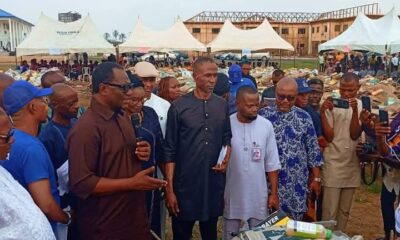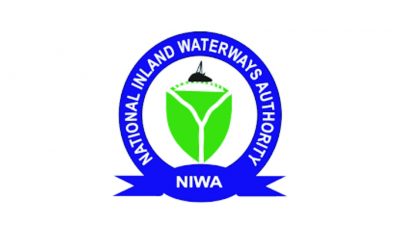Featured
Wike Cautions Against Politics Of Violence …Awards Contract For Bori Town Internal Roads

Rivers State Governor, Chief Nyesom Wike, has declared that politics of violence was alien to him because he was a believer of the rule of law.
The governor maintained that even in the face of political provocation, unfounded allegations and outright disregard to statutory laws by unruly political actors, his administration cannot resort to political violence.
Wike made the assertion at the inauguration of the 17.2kilometres long Bori-Kono Road that held at Methodist Comprehensive High School Premises in Baen community of Khana Local Government Area, last Friday.
The governor said his administration has done so well for Rivers people in terms of project delivery, ensuring security and promoting good governance, which have earned political goodwill of Rivers electorate.
Wike stressed that already Rivers people are at home to listen to his political counsel on who to vote in the 2023 election, and there is no need to recourse to political violence against anybody.
The governor noted that Senator Lee Maeba and Dr. Abiye Sekibo have been trying to instigate violence in the state by deliberately violating a state law that prohibits the location of political offices in residential areas of the state.
“Few days ago, you (Maeba) and Abiye went to Igboukwu Street, D/Line (Port Harcourt) without the approval of government to site a political office.
“We are talking about Executive Orders 21and 22 that have now been taken over by the law passed by the State House of Assembly. We did not send the chairman of Port Harcourt council to go and bring it (the building) down. We have the powers.
Wike spoke further insisting that, “But we say, no, let’s take a step further. We went to court to say, look, this is in violation of the provisions of the law. It is the count that has placed the seal-off.
“If we are violent, since you want to try to see whether we are violent or not, we would have shown it. But you’ve been defeated. We have always followed due process and we cannot be violent.”
The governor stressed that nobody was harassing anybody and preventing them from their political campaigns but such must be done in line with statutory laws of the state.
Wike explained that his administration and other state governors challenged the Executive Order 10 that President MuhammaduBuhari signed in the court and won at the Supreme Court of Nigeria.
On the illegal deductions of state fund to support the Police Trust fund, Wike explained that it was also challenged in court and the Federal Government was directed to refund Rivers State.
Wikeexplained that the state was already in court over Value Added Tax (VAT) collection and remittance and another collection of fund by the Federal Government for one of its agencies without resorting to violence.
The governor said instead of politicians daring to disobey the Executive Orders 21 and 22, they should test the position of those regulations and laws in court.
Otherwise, Wike said under the prevailing system, nobody would dare disobey and not face the full wrath of the law.
Wike also took time to dismiss the alleged assassination attempt levelled against him by Senator Lee Maeba.
The governor said he had never contemplated sending people to kill the senator because he was not his style of politics.
Wike stressed that his explanation has become necessary to set the record straight for posterity.
He asserted that politically, Senator Lee Maebawas not a threat or a major influential of votes whether in Khana council or in the entire state.
Wike insisted that while he as local government council chairman, chief of staff, minister and now governor, he attracted projects to his immediate community and the state, whereas, Maeba has never attracted any project to Ogoni.
According to him, the former senator was awarded an oil block, instead of growing the business, he it sold for $15million.
Even with such fund, Wike maintained that Maeba has never sponsored any Ogoni person on scholarship, or executed even a constituency project for his people.
Wike challenged Maeba to mention anything he had done for his people because the school he attended has not got any intervention from him.
He further revealed that even the Bori Town internal roads and Luae-East-West Road that was awarded to him was not done.
The Rivers State governor said despite the refusal of Maeba to execute the contract concerning Bori Town internal roads, he would re-award the project that would be likely completed by the administration of Peoples Democratic Party governorship candidate, SirSiminialayiFubara, when he wins the 2023 general election as governor.
Providing the description of the project, the state Commissioner for Works, Dr.DakorinimaAlaboGeorge-Kelly, said the contract for the construction of Bori-Kono Road was done in March, 2020 and work started in June, 2021.
George-Kelly explained that the first phase of the project, the 16.5-kilometre long Saakpenwa- BoriRoad was completed long ago, adding that this second phase of 17.29-kilometre long Bori-Kono Road has also been completed; making a total length of 33.79kilometres.
He noted that Bori-Kono project was essentially a major booster of the socio-economic dynamics of Ogoni land.
“This is because the road connects three local government areas in Ogoni land, and serves as route to neighbouringOpobo/Nkoro and Andoni local government areas”, he said.
The General Manager, CCECC Nigeria Ltd, Eric Shen, commended the Rivers State Government for the confidence reposed in the company to handle the project.
He assured the governor that the company remains committed to working with the state government in her drive to advance the socio-economic fortunes of the state.
Featured
We’re Genuinely Opening Up Kalabari Land For Development, Says Fubara
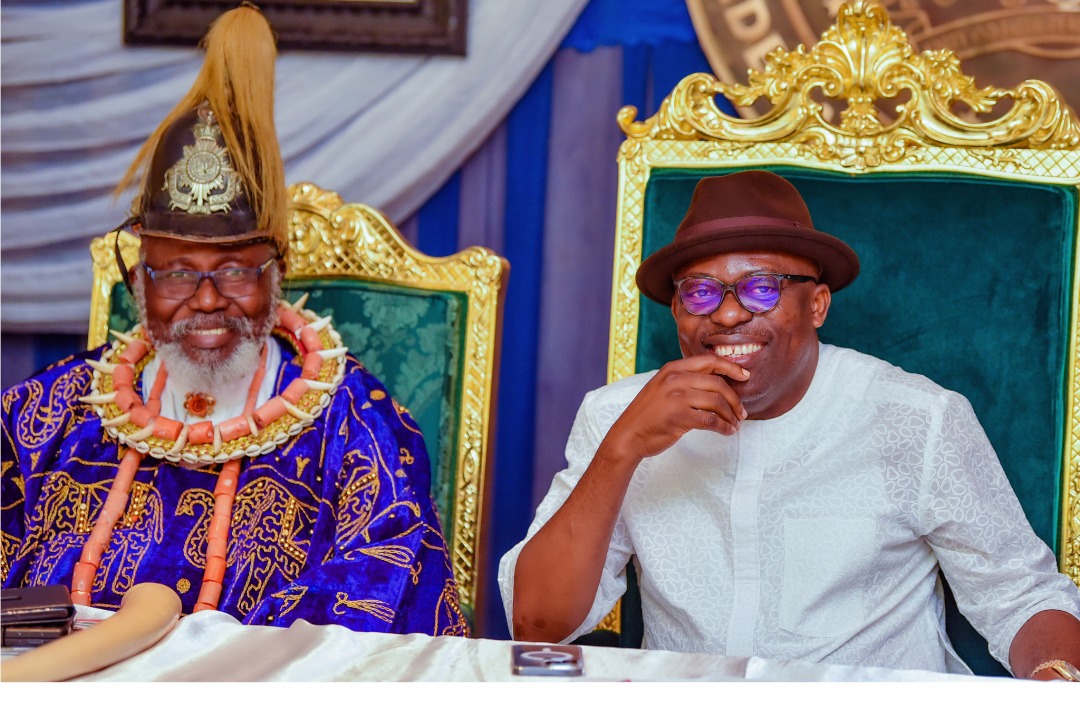
Rivers State Governor, Sir Siminalayi Fubara, has explained that his administration is courageously executing strategic projects that are opening up Kalabari land for unprecedented development and economic growth.
Governor Fubara made the explanation when he received on solidarity visit, a delegation of monarchs, political leaders, elders, women and youths of Kalabari Ethnic Nationality, led by the Amanyanabo of Abonnema, King Disreal Gbobo Bobmanuel, at Banquet Hall of Government House in Port Harcourt, last Tuesday.
The Governor stated that while previous administrations avoided executing the original plan for the Trans-Kalabari Road project due to cost implications, he has ventured into it, and driving the process steadily in order to link Kalabari land to the State capital.
Governor said: “Somebody said, if I don’t do it for my people, who will do it for them. We ventured into the Trans-Kalabari Road, we didn’t close our eyes. Our eyes were open because we knew what we were entering into.
“It is not a joke; it is a big project. We believe that at the end of that project, the level of development that it will attract to that line of entry into Kalabari will be very unprecedented.
“Issues of insecurity from our waterways will be reduced because, at that point we are doing road, people won’t be using the river anymore. The cost of living will also be cheaper.”
Governor Fubara further asserted: “So, you understand that your interest, your safety, your development is key to us. It is not about the number of years that we are going to be here; what is important to this government is the impact we make while we are here.”
Responding to their unanimous endorsement to see him run for a second term in office, Governor Fubara said power belongs to God, and He gives it to whoever finds favour in His sight.
Governor Fubara, however, stated that if God so approved of it, even those who are regrouping against him will not see the path God will lead him because they cannot scuttle such plan.
He added, “Power belongs to God. So, you see, I like believing that we don’t have any problem. When we get to the bridge, we will cross it. If we can break the bridge, Moses will come and create a road for us. So, you don’t need to worry.
“We will cross the bridge. We will cross it in a way that our enemies will be struggling; they won’t see where we are passing. So, don’t worry.”
Governor Fubara acknowledged the immense support to him by Rivers Ijaw, and urged particularly the Kalabari people to stand with honour in their unalloyed support for his administration, which will neither abandon them nor fail to deliver quality projects to the people.
Governor Fubara also responded to their requests and informed them that his administration has completed the Emohua/Tema Junction Road project, and ready to inaugurate the Degema Zonal Hospital in May.
He said the Health Commissioner has been directed to assess the state of the Abonnema General Hospital for immediate rehabilitation, while promising to address the issues of shore protection in the area.
Governor Fubara assured that with the Abonnema sandfilling works completed, the phase two will commence that will include Buguma, explaining that the Commissioner for Works has been tasked to do the assessment immediately.
On the request for the establishment of tertiary institution in the area, Governor Fubara said his administration is already inaudated with memos asking that the off-campus of Rivers State University established previously be revised because it has become difficult to sustain them, but quickly added that the government will consider the establishment of a viable institution that will provide technical and entrepreneurial skills to the people in a sustained manner.
Reading the address of Kalabari Ethnic Nationality, Chief Pawariso Samuel Horsfall, announced that the entire Kalabari people have unanimously endorsed Governor Fubara for a second term, and vowed to mobilise Rivers people to ensure electoral victory for him in the 2027 gubernatorial election.
In his speech, the leader of the delegation and Amanyanabo of Abonnema, King Disreal Gbobo Bobmanuel, expressed the profound thanks of the Kalabari people to Governor Fubara for his genuine love for them, as evidenced in the types and quality of development projects delivered or being executed in the area.
Featured
Senate Passes N54.9trn 2025 Appropriation Bill

The National Assembly, yesterday, passed the N54.9 trillion 2025 Appropriation Bill.
The Tide source reports that this followed the adoption of the report of the Committee on Appropriations on the bill.
The report was presented by Chairman of the Committee, Sen. Solomon Adeola (APC-Ogun).
The Tide source reports that highlights of the passed 2025 appropriation bill indicates an aggregate expenditure of N54.9 trillion, statutory transfers of N3.6 trillion, with recurrent expenditure put at N13.6 trillion.
While the sum of N23.9 trillion was earmarked for capital expenditure, debt servicing was put at N14.3 trillion, fiscal deficit N13.8 trillion, while 1.52 per cent was approved as deficit and GDP.
Olamilekan, while presenting the report, said that the senate debated the general principles of the bill on Dec. 19, 2024.
This, he said, had resulted in the second reading of the bill after which it was referred to his committee for further legislative action.
The senator said that the initial proposal of the executive was N49.7 trillion.
He, however, said while processing the bill, the joint committee on appropriations met the president’s economic team to discuss the revenue projection and expenditure of the appropriation bill.
“After series of meetings, the Committee on Finance, in conjunction with our committee, sourced for additional revenue from some revenue-generating agencies,” he said.
Adeola said that the additional fund was made possible because of the increase in revenue by some of the revenue-generating agencies.
He further stated that some agencies of government provided funds to take care of critical needs.
The lawmaker said that the upward review of the budget from N49.7 trillion to N54.9 trillion was to cater for the difference between the details and the bill, procurement of vaccines and additional funding to some government agencies.
“The joint committee worked harmoniously with the leadership of the National Assembly and the executive arm of government in the processing of the bill.
“This ensured maximum collaboration of the two arms in the utilisation of additional revenue projection.
”This is to improve the funding of some critical projects which could not be adequately funded in the budget proposal earlier submitted by Mr President due to funding constraints,” he said.
Adeola said that the 2025 appropriation bill was presented late as against the 2024 appropriation bill.
He urged the executive to present the budget to national assembly not later than three months before the beginning of the next financial year.
“This will help return the country to the January-December budget circle,” he said.
Featured
CBN Retains N100 ATM Fee For Withdrawal Below N20,000
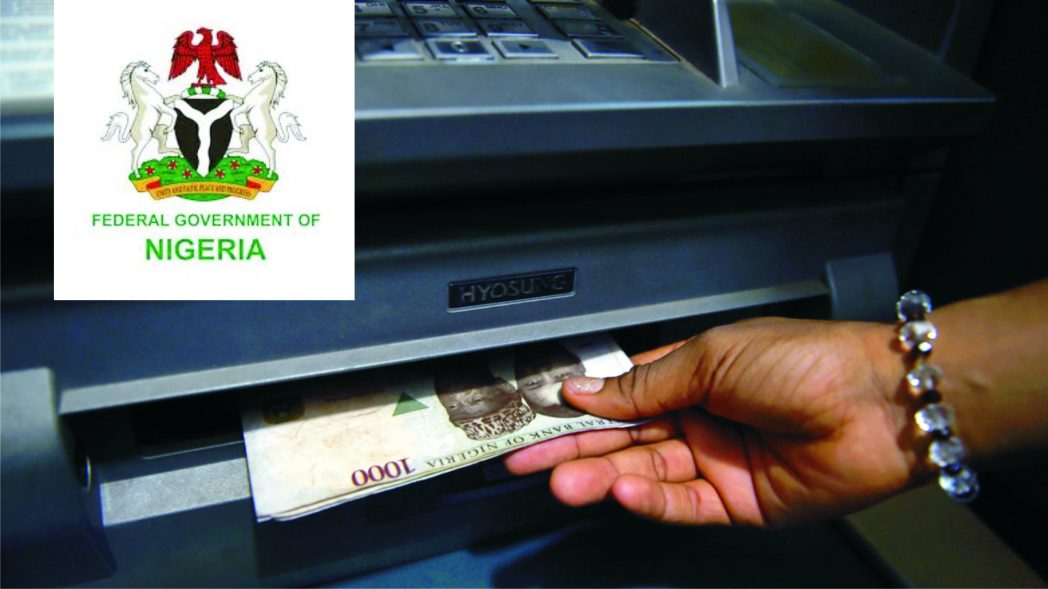
The Central Bank of Nigeria (CBN) has announced that Nigerians withdrawing less than N20,000 from another bank’s Automated Teller Machine will still be charged a fee of N100 per transaction.
This is according to a FAQ document published by the apex bank on its website, yesterday, which provides further information on a new CBN’s directive.
The directive is part of the newly revised ATM transaction fees set to take effect from March 1, 2025, as contained in the CBN circular dated February 10, 2025.
Under the revised fee structure, withdrawals from one’s bank ATMs will remain free of charge.
However, customers using ATMs of other banks will be subjected to a charge of N100 per withdrawal of N20,000 or less at on-site ATMs, which are located within or directly affiliated with a bank branch.
Off-site ATMs, which are positioned outside bank premises such as shopping malls, fuel stations, and other public spaces, will attract an additional surcharge of up to N500 per transaction.
For international ATM withdrawals, charges will be based on cost recovery, meaning customers will bear the exact fee applied by the international acquirer.
The CBN stated that the charge on withdrawals below N20,000 is intended to prevent customers from splitting withdrawals into smaller amounts to avoid fees.
The FAQ document read, “Yes, the fee of N100 will apply if you withdraw less than N20,000 from another bank (a bank other than the one that issued your payment card).
“The reason for applying the fee for every N20,000 withdrawal is to prevent customers from being compelled to break their withdrawals to less than N20,000 per withdrawal.
“In other words, ATM transactions will incur a base fee of N100 per transaction. It is also important to note that a tiered fee structure will apply for transactions exceeding N20,000, with an additional N100 charged for each subsequent withdrawal of N20,000 or portion thereof.”
Customers withdrawing more than N20,000 from another bank’s ATM will be charged an additional N100 for every subsequent N20,000 or portion thereof.
Another significant change in the revised structure is the removal of the three free monthly withdrawals previously allowed for customers using other banks’ ATMs.
From March 1, 2025, all withdrawals at another bank’s ATM will attract charges, potentially increasing costs for customers who frequently use ATMs outside their primary bank.
The apex bank has clarified that financial institutions are not permitted to charge more than the prescribed fees, although banks may reduce charges depending on their business strategy.
Any bank found in violation of the directive, including compelling customers to withdraw less than N20,000 per transaction despite sufficient funds in their account, will be sanctioned accordingly.
Customers who experience such restrictions are encouraged to report complaints to the CBN Consumer Protection Department via cpd@cbn.gov.ng.
To minimise transaction fees, the CBN has advised customers to prioritise withdrawals from their bank’s own ATMs.
It also encouraged Nigerians to explore alternative payment methods such as mobile banking applications, POS transactions, and electronic transfers to reduce reliance on cash withdrawals.
-

 Editorial5 days ago
Editorial5 days agoChecking Terrorism Spread In The South
-
Women5 days ago
Women Can Go Without Artificial Beauty
-
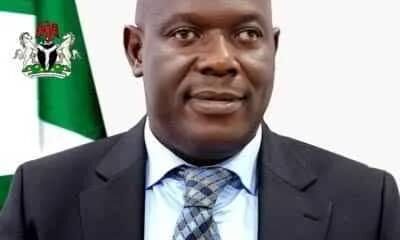
 Nation5 days ago
Nation5 days agoNDDC Scores HYPREP High On Remediation
-
Business5 days ago
NCDMB Scribe Sues For African Collaboration Strategy On Local Content …… Decries Fragmented Implementation
-
Opinion5 days ago
Proposed ‘12-4’ Education Policy: How Sustainable?
-
Sports5 days ago
Nwabali Remains First Choice Goalkeeper
-
Sports5 days ago
NWFL: Angels Coach Praise Players Despite Draw Against Bayelsa Queen
-
Nation5 days ago
Fire Guts Seven-Storey Building In Lagos


